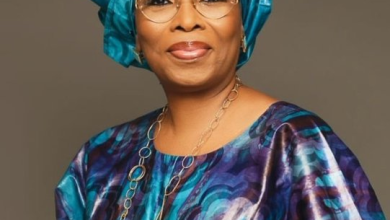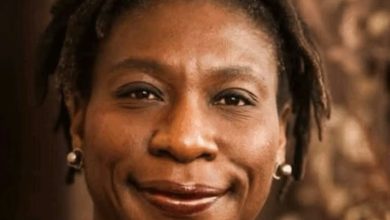
|
Getting your Trinity Audio player ready...
|
British-Nigerian writer Chidera Eggerue, popularly known as The Slumflower, recently went viral for a quoted statement in which she declared marriage ‘sex work.’ The statement has since gone on to cause a stir on social media, with different ideological parties, feminists inclusive, pitching their tents for or against her sentiment.
The comments in favour of her position drew heavily from books on history, economics, social thought, and biographical personal commentaries of writers such as bell hooks and Nawal El Saadawi. The conclusion they were all reaching, inspired by Eggerue’s position, paints nothing but a grim, fatalistic white-and-black picture of marriage and all that relates to women’s rights and agency as a consequence.
The first issue with Eggerue’s position is that it blurs any meaningful line between the concepts of marriage and sex work (or, more accurately, prostitution, as it’ll be referred to hereon in the article). Language exists to describe reality as we experience it. Because there is a marked difference between the institution of marriage and prostitution, the words to describe them were necessary to form. Radical feminism acknowledges this difference, even as it is critical of the existence of both, as they can be (and were, and still are in some cases) systems employed towards the subjugation of women. Conceptualising the (negative) functions of both institutions does not make them the same in any way. In the same way, religion, politics, art and the like exist as distinct ideas and endeavours in society. To liken these concepts to one another, to the point of blurring all distinctions, may be appreciated in the academic and intellectual corridors of creative and philosophical thinking but offers little to no value in the real world.
If marriage is prostitution, then prostitution would be marriage. Religion would also be marriage on a grander scale, and politics would be religion, given the sway of politicians over their followers and economies of the world. If one concept can be adequately substituted for the other, then every single human interaction would be reduced to transactions – for sexual or non-sexual benefits. Ergo, feminist activism could also be seen as prostitution- for grants, for women’s rights, for normalisation in the general society, or religion- to those who identify as feminists. And if concepts in society can be all things, then it is nothing, as well, because why should people’s actions and interactions with one another be seen as transactional and not as devotional or a creative process?
The second issue with Eggerue’s position is that it undermines women’s agency and the basic fact of women as sentient beings with inherent values, as promoted by feminism. To take a stand as a feminist, to promote ideals of equality and freedom from male oppression as a way of life, from the personal to the public, is to take a moral stand. Cultures that treat women as second-class citizens, cultures that promote child marriage, marital rape and domestic violence, are moral in their right, informed by their age-long traditions, but in a progressive, civil society, such beliefs are anti-person and -womanhood. To be a feminist in such societies, most times is to usually be one of the lone fighter voices against the tide of patriarchy and misogyny. To be a feminist is to affirm these lofty ideals, and so to perpetuate the objectifying beliefs and models obtainable in these cultures is decidedly anti-feminist.
“All of us ashawo,” was and remains a theoretical observation and musing, but no non-prostitute who says so in actuality considers herself a prostitute. That the objectification of women is pervasive and commonplace in society shows the necessity for feminism, which stands in contrast to such a reality, and to render such cases of objectification, in words, labels, or actions, as if they hold any truthful value, by declaring all women prostitutes or all romantic relationships women are in a sex trade betrays the cause of feminism.
This does not deny that romantic relationships and marriages, especially to men, are not employed to perpetuate harmful beliefs and actions towards women in them, but to highlight the fact that much of society is prejudicial to women, and feminists still maintain a stance that humanises women, therefore, such positive perspective can be maintained when it comes to matters of love and marriage. To highlight the ways and words women are objectified as or with does not translate to women being such, so much so that writers like Nawal El Saadawi call herself “a free prostitute” (as opposed to “an enslaved wife,” even though she was married thrice).
Options for living a free, rounded life exist beyond the false dichotomies presented by a fatalistic, patriarchal outlook that deems women as beasts of burden condemned to a life of servitude and inferiority to men.
Feminist theories that explore the state of women in society are sacrosanct, as these help to identify the problems they face and find solutions. However, theories are not the end-all and be-all of feminist activism. The message of women having agency and intrinsic worth, the fight for equal opportunities, and the push for laws that protect women beyond the means of their agencies are all such solutions to problems women face in society, all driven by a counterfactual reality. These, when sustained, are more than enough to quash misogynistic mindsets and beliefs. For women who are feminists, for women who are liberated, and for young, impressionable girls who are coming into feminism, it is important to highlight the idea of personal agency when it comes to love, sex, and marriage.
To see themselves as being paid for in any way, outside or within marriage, is counterintuitive. Women are humans, and they can make decisions in their self-interest. Choosing a career, choosing a (sex) partner, and choosing a lifestyle are all choices that can be made with the right information. Degradation and subjugation (whether obtainable in marriage, prostitution, the workplace, or anywhere else for that matter) do not have to be an option. Sex, for women, should not be an act that is done to them or given to men. Their worth exists independent of the monetary, patriarchal value placed on them, and true liberation, fully expressed in agency over oneself, should dictate the terms of their interaction with a romantic interest.
The third problem with Eggerue’s position, most often echoed in liberal feminist spaces, is an attempt to promote sex work, and therefore equating the transactional nature of the industry to other facets of society, all the while ignoring its predatory, misogynistic feature, belie a logical inconsistency. If marriage and prostitution are fundamentally the same, then there is no reason to criticise the other and call for its end while arguing in favour of the continued existence or inevitability of the other.
Why is prostitution framed as an “empowering choice” in a progressive society, but marriage is spoken of as a relic of ancient history? Why is marriage seen as a system of male dominance, but prostitution somehow exists in isolation from patriarchal norms? Why is a woman desiring to get married treated as a conditioned, mindless bimbo, but a woman in prostitution is informed and in charge of her decisions? If the traditional woman will be a lifelong slave to the sexuality of her husband, then the prostituted woman is much more of a slave to the sexuality of not one or two men but hundreds and thousands.
If monogamous (heterosexual) women are pandering to the male gaze and performing femininity and modesty for the approval of men while hoping to be picked and wifed, hoping to get the benefits of provision (food, cloth, house), then a prostituted woman is likewise – commodifying her sexuality, promising and performing sex acts, catering to the wild side of a man (as opposed to the respectable part of him the wife pampers), while hoping to get paid to provide for herself. If a subset of women are groomed to be ‘good’ to ‘tame’ a man in marriage, so also are a subset of women groomed to pawn their sexuality to ‘ensnare’ a man in prostitution. But of course, both are really at the mercy of a man and none the better. The conservative woman who declares ‘submission is powerful’ is not unlike the liberal feminist who claims ‘sex work is empowering.’
The radical feminist perspective is the valid and consistent position, critiquing both institutions for what they are. For the liberal feminist who agrees that prostitution and marriage are the same in toto, then they must agree that the bad features of one would be apparent in the other. Yet the average liberal feminist is less than enthusiastic to criticise prostitution as much as she is effusive to condemn marriage.
If buying and selling women, as obtainable under the traditional bride price system, thereby giving a man access to a woman’s personhood- her name, her labour, her womb, her vagina, is anti-feminist, so is the buying and selling of women’s sexual services in prostitution.
If humans’ natural need or want for sex validates the existence of the sex industry, in the liberal’s worldview, then the institution of marriage should validate humans’ natural need or want for companionship. There is no logical argument to be made in favour of prostitution being a free choice and marriage anti-self-agency, all the while maintaining that they are similar. If it could also be reasoned that companionship can be found outside of marriage as an institution, then sex – that is mutually beneficial and mindful of one’s agency – can exist outside of the sex industry.
For a marriage, however, entered into as a means of companionship or to fulfil a social obligation, its archaic parts can be eradicated, criminalised, or negotiated away in favour of notions like respect, value, love, civility, and the likes, but for the sex industry, its basic function remains the exchange of money for sexual benefits and is non-negotiable. A marriage can be built based on good values and arguably made to be mutually satisfying and fulfilling, inculcating all aspects of a person’s humanity and agency but no good person will buy access to another’s sexuality, reducing their whole to a part or single function. There may or may not be good partners for women, but there can be no good clients for prostituted women.
In all, while marriage may serve a positive individual or communal purpose in a progressive society, prostitution holds no such benefit, especially for women. Hence, they are not one and the same thing by any means.






